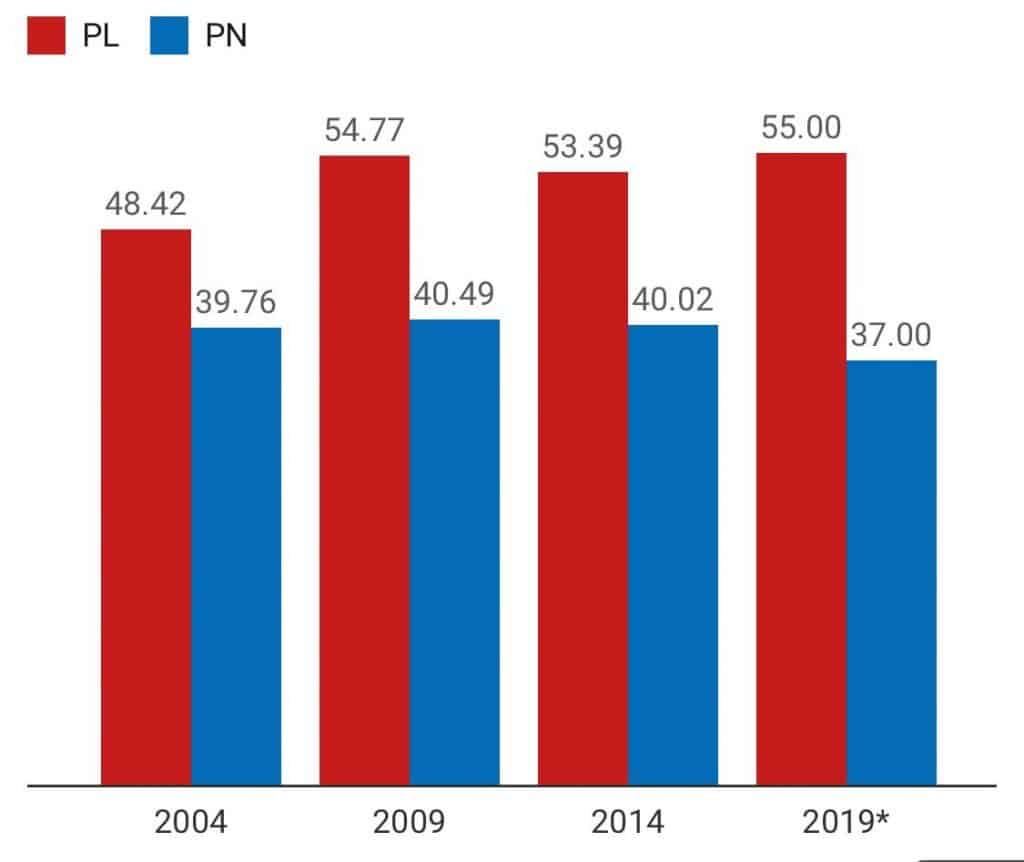
‘A little fine tuning’ is what Clyde Puli said the PN needs now. Yeah. A little light dusting and this ship can occupy this spot on the bottom of the Atlantic for another generation.
That it’s an unenviable, maddeningly difficult job to put on a brave face in the depths of disaster is granted. There are always winners and losers and it’s not like Adrian Delia’s team started the PN’s losing streak.
But they were supposed to end it. Instead they’ve reached depths as yet unexplored in the PN’s history with the exception of the one election the party faced while its leadership was still sporting a cracking tan from the Ugandan sunshine.
The parties are more than 50,000 votes apart. Putting a brave face on that is writing a hagiographic eulogy in very poor taste. Have they decided the PN is dead? Have they given up on it? Then why do they insist on burying it?
Perhaps it’s because there is no bright side to this reality if it were to be confronted with any seriousness.
Compared with the disadvantage faced by the PN against Labour in the last EP elections, the gap has near doubled.

It would have been amusing had it not been so tragic watching Clyde Puli on NET TV earlier today taking the cue from Joseph Muscat and saying the difference between the political parties is give or take in the same region of the gap suffered by the PN at the June 2017 election.
In Maltese the phrase is ‘fl-istess ilma’, ‘in the same waters’, same ballpark.
It’s not the same ballpark. It isn’t even the same ballgame.
But in repeating that line, Clyde Puli unwittingly (are you sure?) repeats the pattern of all the apparatchiks ostensibly from both sides of the divide throughout the day: that of singing from the same hymn-book shared by two political parties who appear to be invested in an identical outcome, the continuation of Joseph Muscat and Adrian Delia in perpetuity.
A political strategy that both celebrates the demi-divine status of the leader of one party ad the retention in office to hopeless resistance by his opposite number is so blindingly paradoxical that it is inevitably loaded with other impossible contradictions.
There’s one contradiction this narrative has yet to confront though.
Who will the two PN MEPs be?
Will the choice of those who voted PN, however disturbing their minority, prove to have reflected Adrian Delia’s desire to be ‘positive’? Will the choice prove to confirm Joseph Muscat’s explanation that the PN’s result shows how angry voters are at the ‘traitors who speak badly of Malta’?
It’s important to hold out for that answer because the showing by Roberta Metsola and David Casa – the so-called traitors – as compared with the other candidates who fit more comfortably in Adrian Delia’s new way will also tell us whether the 50,000+ gap suffered by the PN was really ‘because of the traitors’ or, as now seems clearer, in spite of them.
A strong showing by Roberta Metsola and David Casa will, paradoxically, tell us that Adrian Delia performed as well as he did – terrible as that is – because of the people he wanted to unseat.
When the dust clears and what is left is the blood and the grime from this pointless rout, we may yet realise that the battle for truth and justice fought on the European front will be effectively unaffected by this result. The soldiers who fought it may yet live to fight another day.
Will their party in Malta, will the PN, truly ‘listen’ to its supporters and become again the party they deserve?